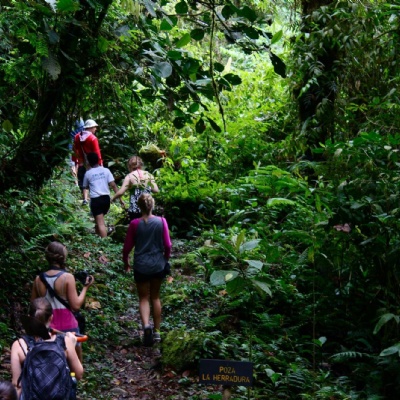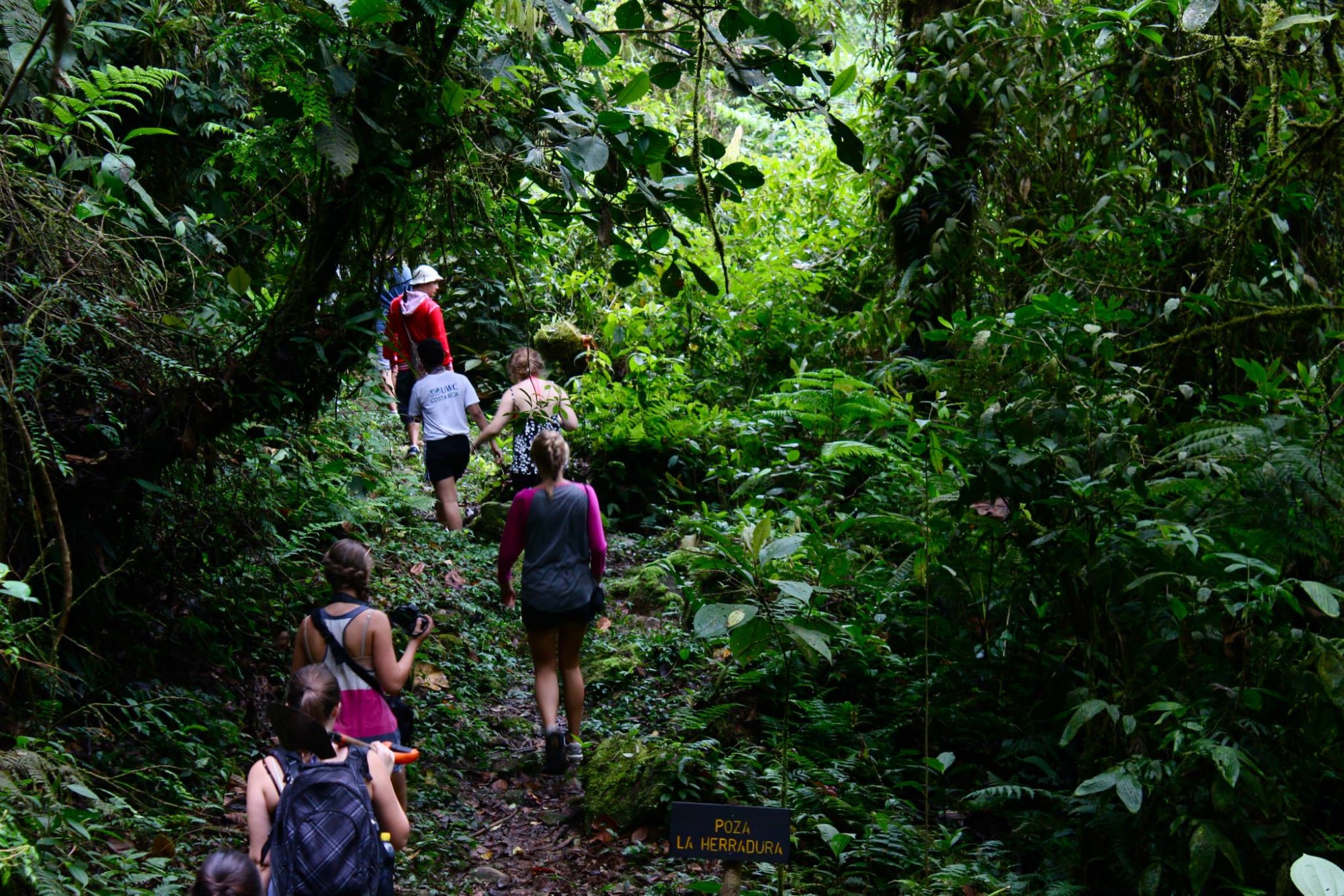Boarding school: it isn't what you think

You wake up in a musty, dark dormitory. It's a bit cold, and you're surrounded by paintings and decor from hundreds of years ago. You've got another long day of studying ahead, in creaking classrooms, surrounded by people that look and sound just like you.
Is this how you imagine boarding school?
It's an idea that's featured in a thousand movies and a thousand books. Even the positive tales of boarding school - such as the Harry Potter books - draw from often outdated stereotypes.
For many students that live, laugh, love and learn at boarding school, it's not a good description. Obviously, there are schools out there that make a big noise about the history and traditions of their institutions. There are still more that sell themselves as places where students learn discipline, or push their grades higher.
But there are others out there. Happy, progressive and inspiring places. And it's a question of finding the one that helps you become the person you want to be.

The most important thing you can do when choosing a school for you is to remember that there is a school for you. Do your research. Decide what you're looking for. Visit the school. Meet students and teachers. Sample the atmosphere. And find out if they offer the sort of nurturing and yet challenging environment that will help you make your dreams a reality.
And don't listen to all the myths you hear. Such as:
1) All boarding schools are costly
Some boarding schools are very keen to project an image of "exclusivity". And that can mean that they set the fees so high that only the wealthiest can afford a place. But that isn't true of all schools. Others are far more welcoming, and although there may well be requirements for applicants, they won't necessarily all be to do with money.
At UWC, we believe that a student's financial circumstances shouldn't stand in the way of their dream to change the world. Over 60% of students at our 18 schools receive full or part scholarships to assist with their education. Our national committees also interview and select students based on their passion and potential, meaning that our schools are places where talented and tenacious young people like you can discover new ideas and drive each other on to great things.
2) Boarding schools aren't diverse
There's a lingering idea that boarding schools are only home to a "certain type of person". That a boarding school education is focused on grades, and not on discovering ideas, opinions and perspectives beyond a narrow bubble.
In fact, many boarding schools have made a specific effort to broaden diversity in recent years, even offering bursaries and scholarships. At UWC, it goes further. Diversity is our lifeblood, and at the heart of what makes us special.
Our students come from more than 155 different countries, from wealthy regions to communities that have been ravaged by war. We encourage young people from very different backgrounds to meet, laugh, play and - most importantly - talk and discover what lies at the root of the other person's beliefs. Through community activity, we also inspire students to consider different ways of acting, and recognise their place in a bigger, more connected community.
3) Boarding schools are strict...and restrictive
Still believe that boarding schools are places where children are "sent away" to develop discipline? In fact, at places like UWC, we advise parents that it's the students who should make the choice to go.
Why? Because they're on the verge of a challenging but transformative life experience, in which they'll be busy, but also inspired to find ways to push themselves further. While living in any community means respecting others and behaving considerately, it's not a stern and scolding environment. They'll learn to be more independent, more confident, more socially-conscious, and more driven. It won't be easy, but it definitely won't be restrictive.
While a student's days will be packed with learning and activities, it's not about strictness and discipline. Rather than forcing young people to swallow endless rules, we empower them to take charge of their own learning and direction, develop their own strong time-management skills, and pursue their own projects. Our schools run "project weeks" in which they are challenged to develop and carry out community initiatives of their choice. And while we support them along the way, they make it happen themselves.
As Daniel Toa-Kwapong - Development Studies teacher at UWC Red Cross Nordic - says: "If you say that the young people of today are the leaders of tomorrow, you're procrastinating."
4) Boarding schools are just about studying, and not life
Are you keen to change the world? Are you looking for a place that will give you the tools to make a difference, rather than force-feed you dead subjects and old lessons? Do you want an education you can use, rather than one you can merely recite?
The good news is: some boarding schools offer that. Spending time in an environment such as this may well give you the structure to learn and receive expert help where necessary. It may also give you the opportunity to meet new friends, and the chance to take part in exciting activities, expeditions and challenges.
One of the biggest frustrations that people have about certain subjects is that it’s not always clear to them how they’ll use them. At UWC, we follow the International Baccalaureate Diploma, a programme that encourages students to develop valuable skills such as critical thinking, collaboration and adaptability. Our teachers also apply lessons to real world situations and ideas, and encourage students to share and question their own perspectives and views. Our projects and community activities also empower students to be more entrepreneurial, and discover what’s possible. In recent years, students have led projects that have tackled menstrual health awareness in India, educated primary schools students in China about how to identify and report sexual abuse, provided language courses to refugees in Italy, and helped repair schools in Africa.
At UWC Dilijan in Armenia – for example – students are invited to take a “third year”, which is essentially a year following their studies in which they collaborate on social, entrepreneurial projects.
You want to know why you’re learning what you’re learning. At schools like this, we don’t just tell you. We give you the chance to realise all you’ve learned while you’re doing something remarkable.
Not every boarding school will be perfect for you. It’s vital that you do your research beforehand, pay the school a visit, and discuss life on campus with people who know. You have so much potential, and you need a place that will help you realise it all. If you want to find out more about how UWC could give you the tools to create the change you want in the world, find out more on our website at UWC.org and contact us for information.
To discover more about how to secure a place at some of the world's best boarding schools, read our post on the UWC blog.
